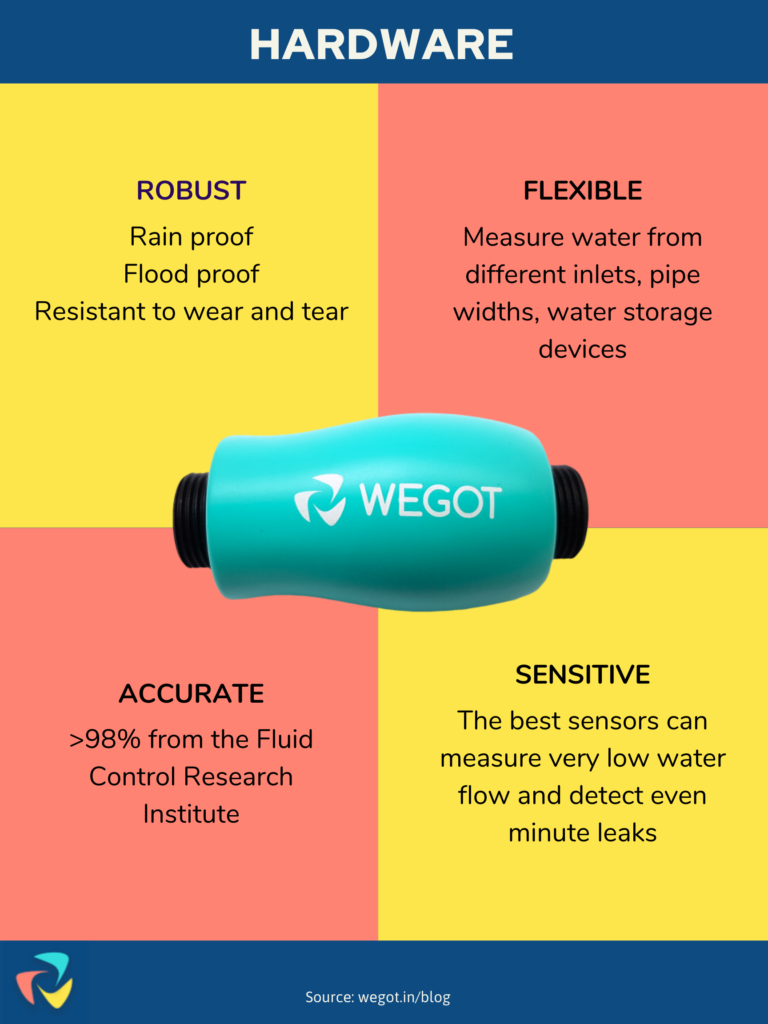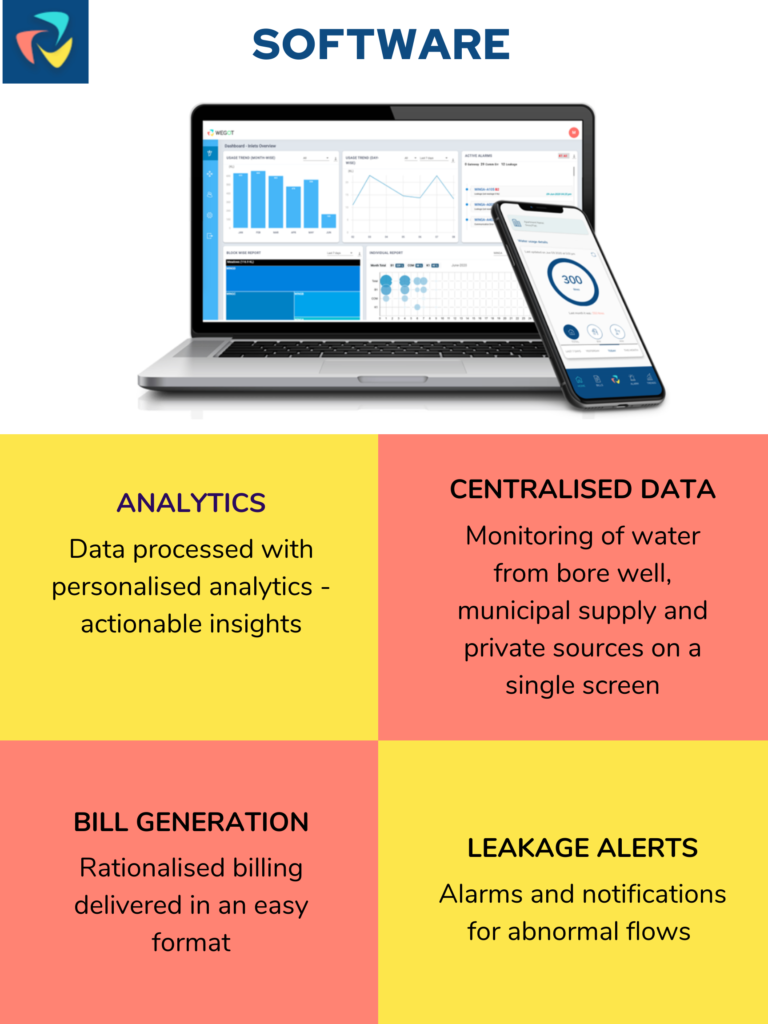IoT-based smart water meters can provide comprehensive water management solution for residential communities and commercial spaces.
These systems enable users to
In turn, this can help conserve water and ensure there is availability even in times of scarcity.
A smart water metering solution has a hardware and software component. High-accuracy sensors for actual measurement are the hardware part of the system. The software component is usually an app. Together, they enable end-to-end water management in a property.

Here are some things to consider when assessing the hardware part of a water metering system.
Analog meters with paddle-wheels are subject to wear-and-tear. Ultrasonic sensors have no moving parts and therefore are not prone to failure. Some sensors are also built to be rain-proof and flood-proof to increase the efficiency of the metering system.
The Fluid Control Research Institute (FCRI), is the premier institute for R&D on flow products, testing and calibration of flow meters. The FCRI gives >99% accuracy certification to smart water sensors with highest level of accuracy in performance.
Look for a minimum of 98% to 99% accuracy certification from FCRI.
High precision, data-driven IoT based solution should be capable of providing real-time data like water consumption, abnormal usage, leakage alerts etc.
A smart senor should provide real time data for the entire water delivery system from source to consumption.
The hardware should be capable of tracking water coming in different types of inlets, pipe widths and water storage devices to provide a comprehensive view of water consumption in a property.
Look for sensors that measure even very small flows of water. Sensors that detect such flow issues allow the app to notify users and water managers to quickly resolve leakage issues.

Most water metering solutions provide a mobile app and a smart web dashboard for real-time and historical information about consumption trends and billing status.
Data on the app should be updated at regular intervals. In addition, the app should provide analytical support with billing trends, consumption patterns, history of leakages.
Mobile apps and dashboards should give multiple source monitoring options that allows users to seamlessly monitor the output of bore well water, municipal water or private suppliers in one single window. This information is very useful in planning and arranging for water supply and ensuring uninterrupted supply.
IoT-based smart water sensors are capable of detecting leakages, no flows and abnormal flows. The mobile app and dashboards should record abnormal flows or no flows and raise alarm notifications.
Smart water system enables rationalised billing through submetering. Bills can be generated automatically and e-mailed every month to users. An intelligent and comprehensive billing engine allows users to setup slab rates, implement volume based rationing and generate water bills based on consumption easily.
Bugs and errors are an inevitable part of technology. A good smart metering system should allow users to address minor errors or sensor and data issues through the app.
For more information on how an ultrasonic meter works, visit our YouTube channel.
To receive information on how WEGoT Aqua’s smart water management system can be customised for your building, contact us at
